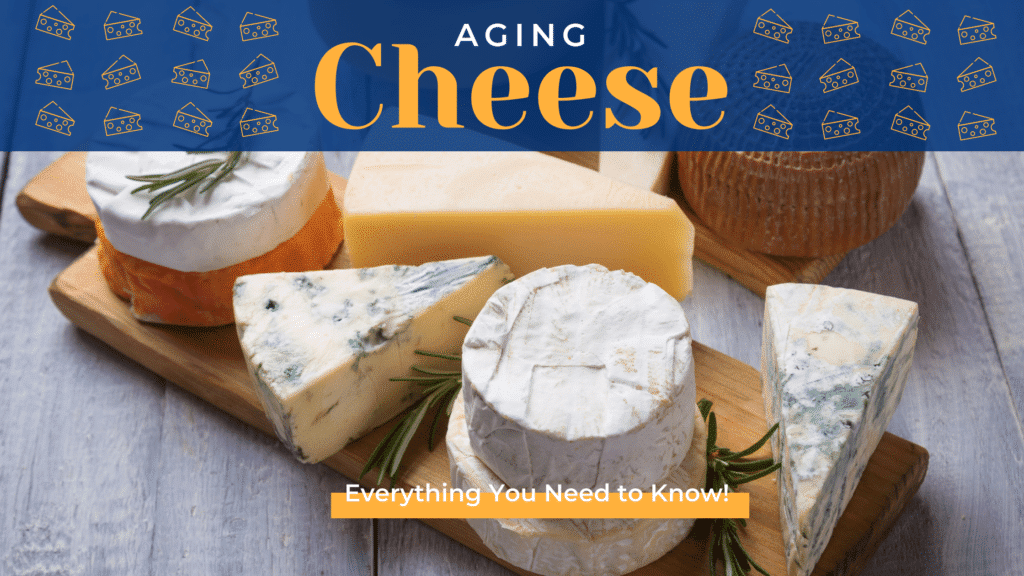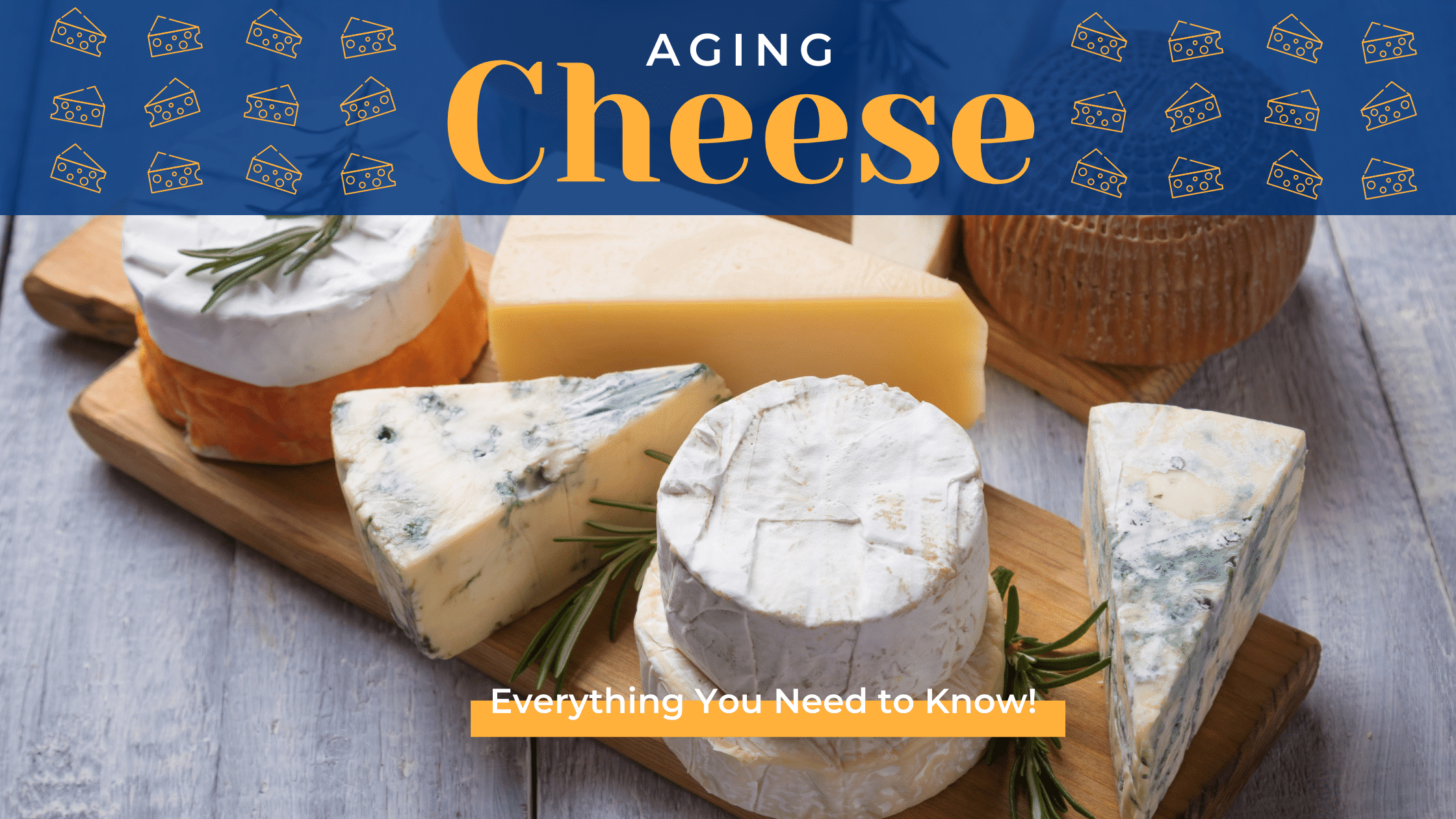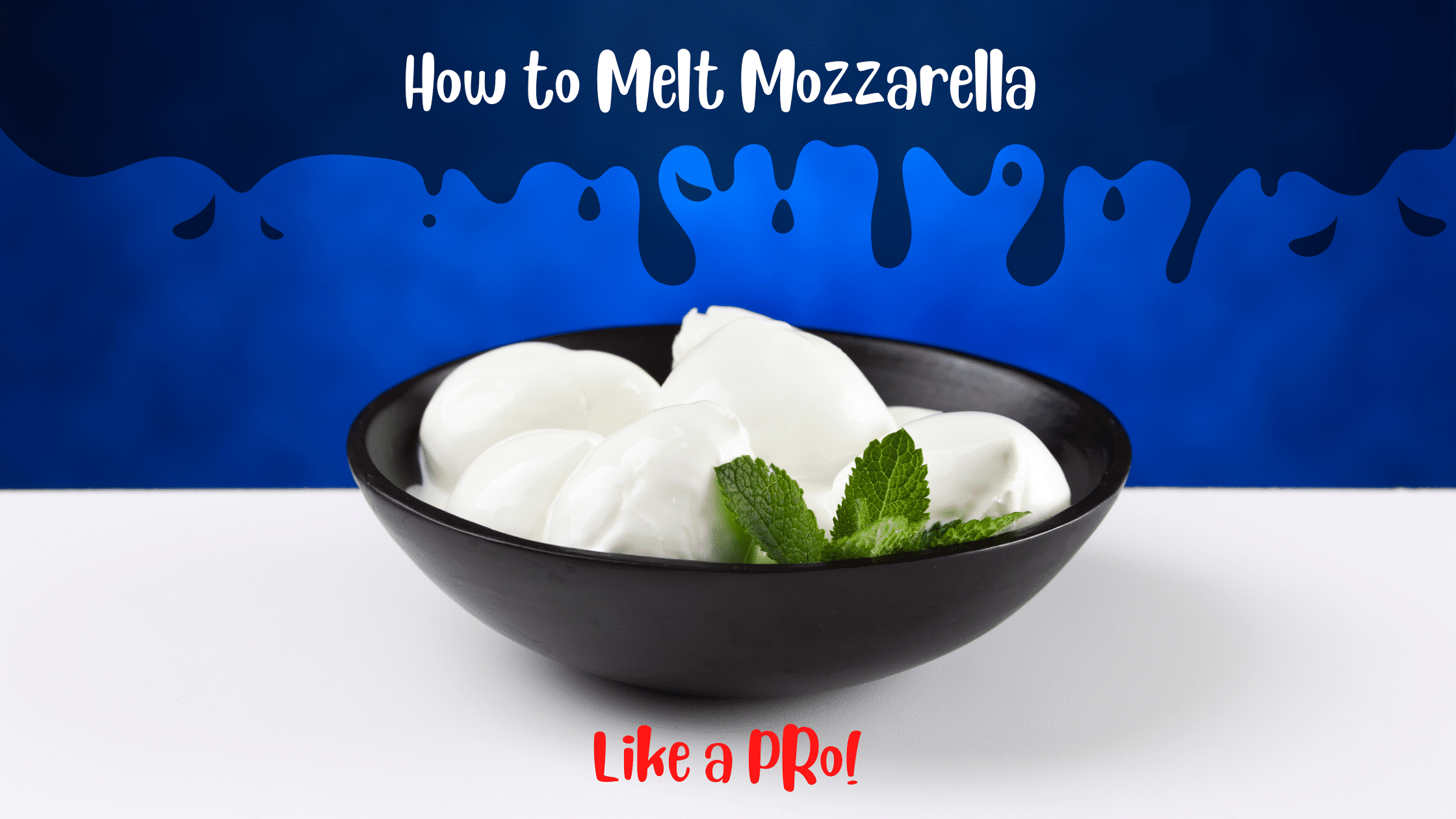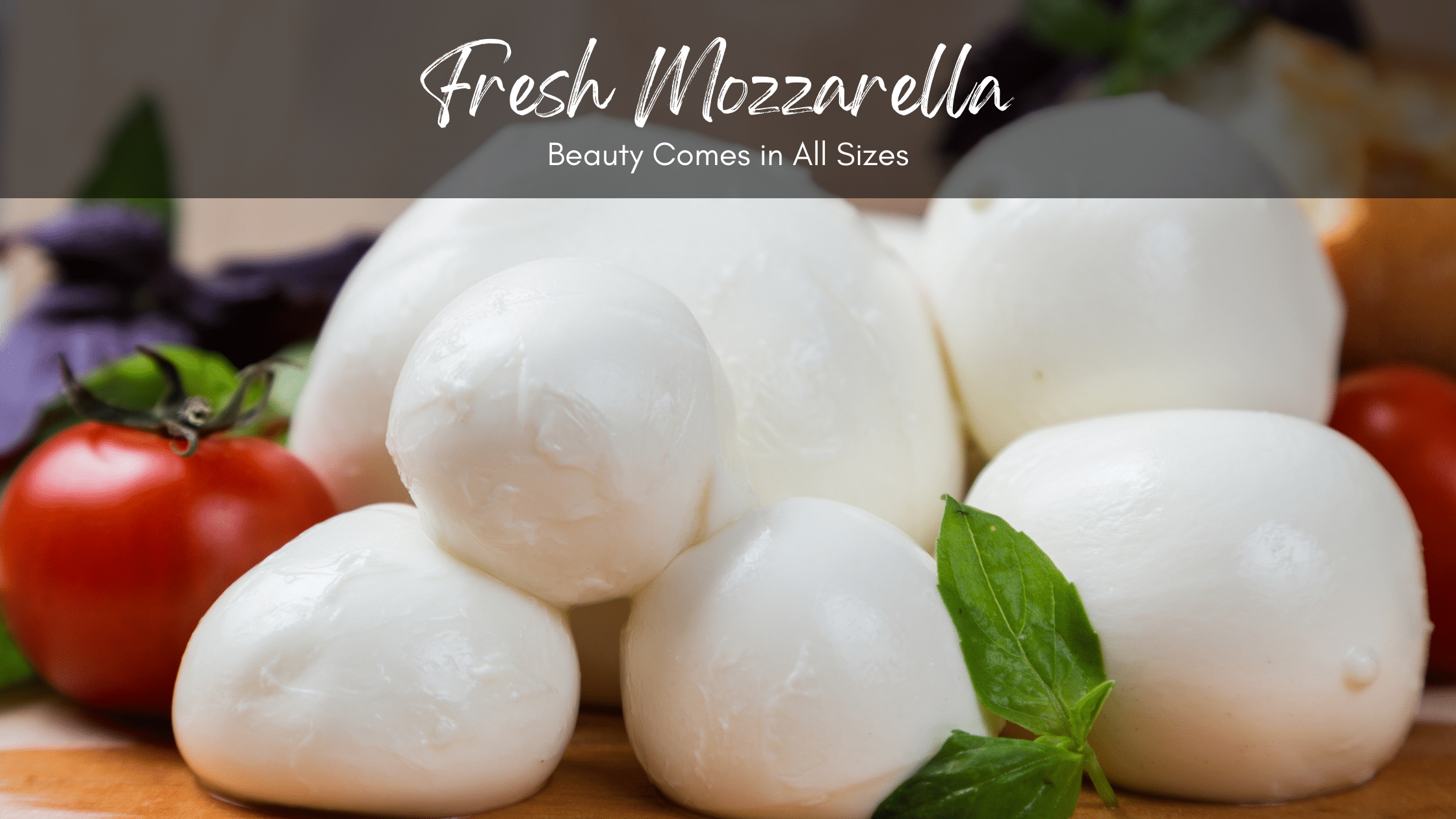Aging Cheese
Have you ever tried aging cheese?
As you may already know, cheese is one of the most universally loved foods in the world. It is so versatile that you can use it as a garnish for your main dish, melt it and make it a sauce, or pair it with your favorite wine.
But how do you do it, and what happens to the cheese?
You can level up your pizza experience in a simple way-by aging cheese.
Aside from making it tastier and richer in flavor, we will give you everything you need to know about aging cheese.
So, let’s get started.
Here’s What You Will Find:
What Is Aging Cheese?
Aging cheese is the stage of cheese production where you ripen it to intensify its flavors. When you age cheese, you reduce the original amount of moisture, making its texture drier.
If you have ever encountered aged cheese, you should be familiar with its intense aroma because the bacteria bakers incorporate into the cheese impact its smell.
An aging cheese matures from the surface to the bottom, making it drier and tastier.
When you hear someone aging cheese, it means the person matures the cheese by storing it in a controlled environment where the bacteria in the cheese boost the conversion of lactose to lactic acid.
Lactic acid is in charge of acidifying the cheese.
Aging cheese also has different periods depending on its kind. Later in the article, you will know the various kinds of cheese you can and cannot age.
Why Is Cheese Aged?
People have different reasons to start aging cheese, but the most common answer is that it becomes better as it ages.
Cheeses like Gouda and Cheddar become better as they age because it helps them release the extra moisture that comes with the start of their cheese-making process.
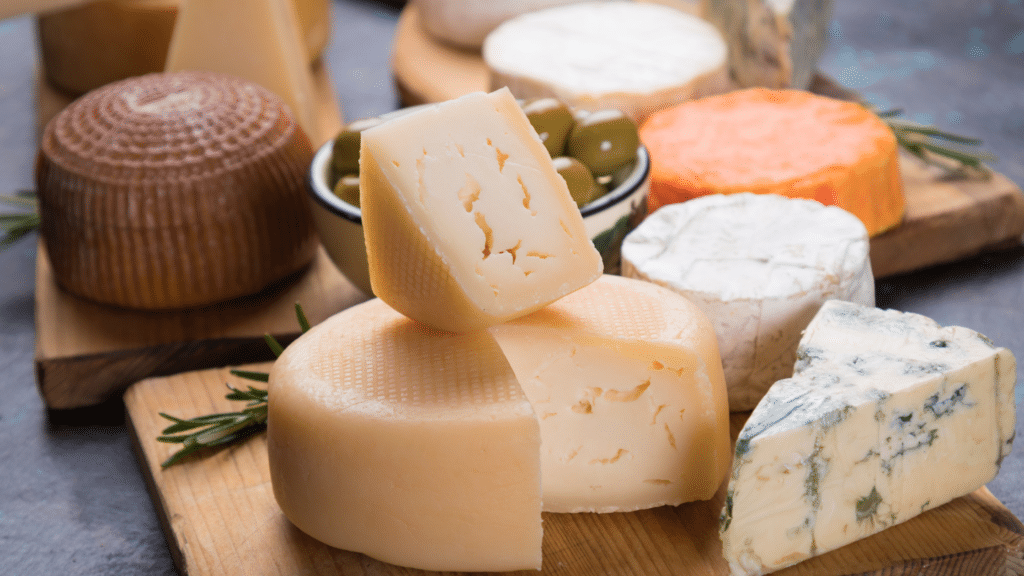
Especially if you want to maximize the aroma, flavor, and value of your cheese, aging it will make you appreciate its cheese process even more.
Eating aged cheese may be better for you if you are lactose-intolerant because there is less lactose to consume than fresh cheeses. Since lactose from milk becomes lactic acid, you will have a lesser quantity to consume.
How to Classify Cheese
Firmness, which changes depending on moisture content, is used to classify cheeses.

Firm cheeses can have a moisture level as low as 30%, whereas soft or fresh cheeses can have a moisture content as high as 80%.
Fresh (or unripened) cheeses, soft-ripened cheeses, firm or semi-hard cheeses, blue-veined, processed, and goat’s-milk cheeses are the most prevalent categories.
Difference Between Fresh and Aged Cheese
The main difference starts with “fresh” and “aged.” Fresh cheeses are made with moisture, a subtler taste, and a softer texture.
Meanwhile, aged cheeses are matured ones with less moisture, a more intense flavor, and drier texture. Another difference is the meltability of the two pieces of cheese.
Since fresh cheeses have more moisture, they can melt faster, while drier ones that come with aging cheese will be more difficult to melt since they have low moisture content.
You can commonly see fresh cheeses in grocery stores where ads say they are milkier and softer. Meanwhile, aged cheeses in significant portions can often be seen in cheese stores.
If you ever encounter aged cheeses in pizzas, you can mostly see them grated rather than melted. Most fast-food restaurants also serve their pizzas with soft cheese since it is easier to melt and incorporate into the pan.
What Happens to Cheese as It Ages?
As mentioned earlier, aging cheese makes it lose moisture and gain a more pungent smell and flavor. It happens when the key ingredient, milk, becomes sour the longer it is stored in a controlled environment.
The bacterial culture that it mixes with bits helps make the cheese mature faster, add the salt, boost the drying process, and cure the cheese.
The lactic acid responsible for the sour taste of aging cheese is the main event when aging cheese. If the lactic acid from the milk is not given enough time to process, then the cheese will not age well.
How Long Can You Age Cheese?
First, it depends on what cheese and the amount you plan to age. Some cheeses take less than a month, while others last more than five years.
Another factor that comes into the picture when thinking about the period of aging cheese is the desired flavor you want as a result.
How long does it take to age cheese?
To help you find the right time frame for your cheese, you may see the list below:
- Muenter has one of the shortest times for foraging, as it only takes five to seven weeks to get a mild flavor.
- (Mild) cheddar and Provolone take up to three months to age, with Provolone reducing its sweetness the longer you age it. Meanwhile, mild cheddar becomes more creamy.
- Like Provolone, Monterey Jack becomes more creamy with a butter-like texture, but reaching this texture and taste takes up to seven to ten months.
- Parmesan takes one of the most extended times to age because it reaches up to two years before you can taste its extensive butter taste.
Aging Cheese Process
What Is the Process of Aging Cheese?
Aging cheese has two basic steps; however, you can skip or add an action depending on your type of cheese.
1. Proteolysis
First, proteolysis happens when the protein in rennet (which not all fresh cheeses have as an ingredient) gets broken down into amino acid compounds.
These amino acids then help change the texture and flavor of your aging cheese into a more concentrated and solidified product.
In some cases, proteolysis also makes your cheese soften over time. So, it depends on what type of cheese you have.
2. Terroir
Second, terroir is not similar to terror, although it is the process of adding bacteria to your cheese.
Terroir effects on cheese differ because not all cheeses come from the same cow. Cow’s milk has different levels and amounts of lactic acid, affecting the mold cultures that can form in your cheese.
These formations then affect the taste and moisture of your aging cheese.

Can You Age Cheese at Home?
Yes, you try aging cheese at home, but you must consider your type of cheese, the environment in which you will store it, and its storage period.
How to Age Cheese at Home
If you plan to age cheese in the comfort of your kitchen, you can follow these steps to make the cheese aging process easier:
- Prepare the area where you will store it and the container where you will place it. It is essential to ensure the location and container are clean and safe from any insects that could crawl on it.
- When you have already placed the cheese inside the container, store it in a place where you can manipulate the temperature-ideally, a small fridge. Make sure that the container properly seals the cheese.
- Place a thermometer in the aging cheese area to monitor if you need to lower and increase the temperature. Although it depends on the type of cheese, the typical temperature should be seven to fourteen degrees Celsius.
- Check on your cheese occasionally and flip it around to ensure its bottom has ventilation. You can wipe the molding area with vinegar if you see any molds.
How Is Cheese Aged?
The most straightforward answer for this is salt and bacteria.
These two are why cheese does not spoil quickly and can last for years but still be edible. Salt absorbs the moisture from the cheese, making it less likely for unwanted bacteria to live there.
If you didn’t know, bacteria love water, so the more hot and more moisturized your cheese is, the more likely it is to spoil.
Meanwhile, the bacterial culture incorporated into the cheese is responsible for its taste and aroma. Generally, it helps cure the cheese, preserving it for an extended period.
Since different cheeses have different milk ingredients, the bacteria cultures differ.
What Is the Best Aged Cheese?
The best-aged cheeses have rich, intense flavor but are not too overpowering that it is the only thing you can taste.
Cheese enthusiasts often consider cheese to be fit for aging if they see it can form calcium lactate, an indicator in dairy-free milk.

Best Aged Cheeses
To give you some of the best-aged cheeses you can try aging on your own, you can refer to the list below:
- First, the best cheeses, aged mozzarella or low-moisture mozzarella, are the best cheese for New York Style pizza. Stringy and super flavorful.
- Gouda is one of the best-aged cheeses because it tastes nut-like but is still sweet and salty. It also becomes crumblier as it takes longer to age, making it easier to incorporate into dishes.
- Parmigiano Reggiano is an Italian-approved aged cheese because although it reaches up to 2 years of age, its taste is not too strong that only adults can eat it. Kids enjoy eating Parmigiano because of its savory and nutty flavor.
- Aged Gruyere is also an everyday household favorite, often incorporated in mac and cheese dishes because of its salty flavor. Unlike other aged cheeses, this aging cheese has its body intact, making it easier to grate.
Types of Aged Cheeses (Flavor & Texture)
| Type of Cheese | Aging Period | Flavor | Texture |
|---|---|---|---|
| Brie & Camembert | 2-4 weeks | Mild, Buttery, and Creamy | Soft & Smooth |
| Mozzarella | 2-4 weeks | Salty and Dense | Semi-Soft |
| Muenster | 5-7 weeks | Mild | Semi-Soft |
| Cheddar, Gouda, & Colby | 2-4 months | Creamy & Subtle | Semi-Hard |
| Provolone | 2-3 months | Sweet or Sharp (depending on the aging period) | Semi-Hard |
| Blue Cheese | 2-3 months | Spicy and Salty | Semi-Soft |
| Feta | 3-6 months | Salty, Tangy, Lemony | Crumbly, Slightly creamy |
| Swiss Cheese | 6-14 months | Slightly Sweet & Nutty | Firm |
| Monterey Jack | 7- 10 months | Creamy & Buttery | Semi-hard |
| Parmesan | 10-24 months | Sharp & Bitter | Hard or Firm |
What Type of Cheese Is Not Aged?
Most cheeses, even fresh ones, are aged but differ in the period. However, there are still exemptions to the general thought.
Three of the most common unaged cheeses are cream cheese, goat, and ricotta. Since they do not have no preservatives or bacteria cultures, people must consume them immediately to get the best of their taste.
Attempting to age these cheeses will only make them spoil, not better. And that is a risk that will take affect your health.
To make it easier to distinguish whether your cheese can be aged, you should first check its consistency. If it is more liquid and spreadable, like cream cheese, you should not try aging it as it will only create molds, not better flavor.
Can You Age Mozzarella?
Yes, you can age a store-bought Mozzarella with the proper storage and temperature controller.
Mozzarella is a fresh cheese that is newly made and has a milder taste. An aged Mozzarella typically has a more yellow color with a sharper aftertaste.
If you plan to age this cheese, it should not exceed four weeks in a container as the texture may be too dry to be consumed. I
f you plan to include your aged Mozzarella in your pizza, you can do so but do not expect it to be as stretchy as a fresh one after getting baked.
You can also pair your aged Mozzarella pizza with tomatoes, as it will help balance out the strong flavor from the cheese to the subtle sweetness of the tomatoes.
Can You Use Aged Cheese for Pizza?
Yes, you can use aged cheese for pizza. If you plan on using aged cheese on your pizza, you can maximize its taste by grating them on top rather than slicing them and melting them in an oven.
Especially if you are a pizza maker or eater who likes eating cheese with a robust and distinct flavor, then aged cheese will be best for you.
Since aged cheese has less moisture, they are drier and more brittle, making grating easier. These cheeses’ dryness is also why you can expect them to be stretchy like Mozzarella if you melt them.

Which Cheese Should Not Be Aged and Why?
It would be best not to age fresh cheeses with a creamy texture. Generally, any white cheese should not be aged because it contains high water content and high moisture.
Since they have high water content, it will only put off the flavor and not strengthen it if you try aging cheese like them.
Those cheeses are also more vulnerable to unwanted bacteria because they are moisturized. So, it is better not to attempt aging them as it risks your health.
Here is Where We Get Aged Cheese
Gourmet Food Store is an epicure's paradise, an online store for those who love great food and great ingredients. They offer you the ultimate selection of international specialty foods such as caviar, cheese, foie gras and pate, gourmet chocolates, oils and vinegars, smoked salmon, specialty meats, teas, fresh truffles, and many other gastronomic delights. Explore the best and most elegant foods in the world at prices that will amaze you. Discover recipes, wine pairings, tips, and everything you need to know about gourmet food all in one place:
The Last Slice
By reading this article’s guide, we hope you know how to age your cheese, what cheeses to buy if you will, and why trying aging cheese could be your next kitchen adventure.
If you are an aspiring pizza baker, buying a pizza oven will make your pizza’s quality and ingredients taste better.
Whether you are planning to host a wine-tasting event in the future or make your pizza, the perfect cheese age will make your food ten times better.
Cheese Related Articles
-
What Cheese Goes on Pizza? Find the Top Cheeses for Pizza
What Cheese Goes on Pizza? you asked. What cheese goes on pizza? – a question as old as the tradition of pizza making itself, and we’re about to dive deep … Read more
-
Is Cheese a Pizza Topping? Find the PRO Answer
If you’ve ever ordered a pizza, you’ve likely wondered, is cheese a pizza topping? or part of the pizza. There’s some debate on the matter, with some saying that cheese … Read more
-
Aging Cheese: The Ultimate Guide to Upscale Your Skills
Aging Cheese Have you ever tried aging cheese? As you may already know, cheese is one of the most universally loved foods in the world. It is so versatile that … Read more
-
Best Stretchy Cheese for a Pizza – (Top 7 Stringy and Gooey Cheeses You Need to Try)
Stretching all the way from the tray to our mouths, cheese is known to be one of the top favorite pizza toppings of all time. But what is the best … Read more
-
Master the Art of Melting Mozzarella Cheese: Tips and Tricks from the Pros
Are you ready to embark on an epic journey to transform your homemade pizza game with the ultimate secret to heavenly, melted mozzarella cheese? Imagine biting into a slice of … Read more
-
Mozzarella Sizes – (Why Fresh Small Balls are the Best)
Are you confused with all the different mozzarella ball sizes? Have you ever visited the supermarket and looked at all these cheeses with these weird Italian names? They all look … Read more
Enjoy!
Not a PRO? Not a Problem!
Take a pizza class to bring your pizza skills to the next level,
so you can be a PRO!
Related Posts

Costco Pizza Delivery: Find How You Can Get It Now!
the PROs
People go to Costco’s food court for many different reasons, but the cheesy slice of pizza they serve is among …
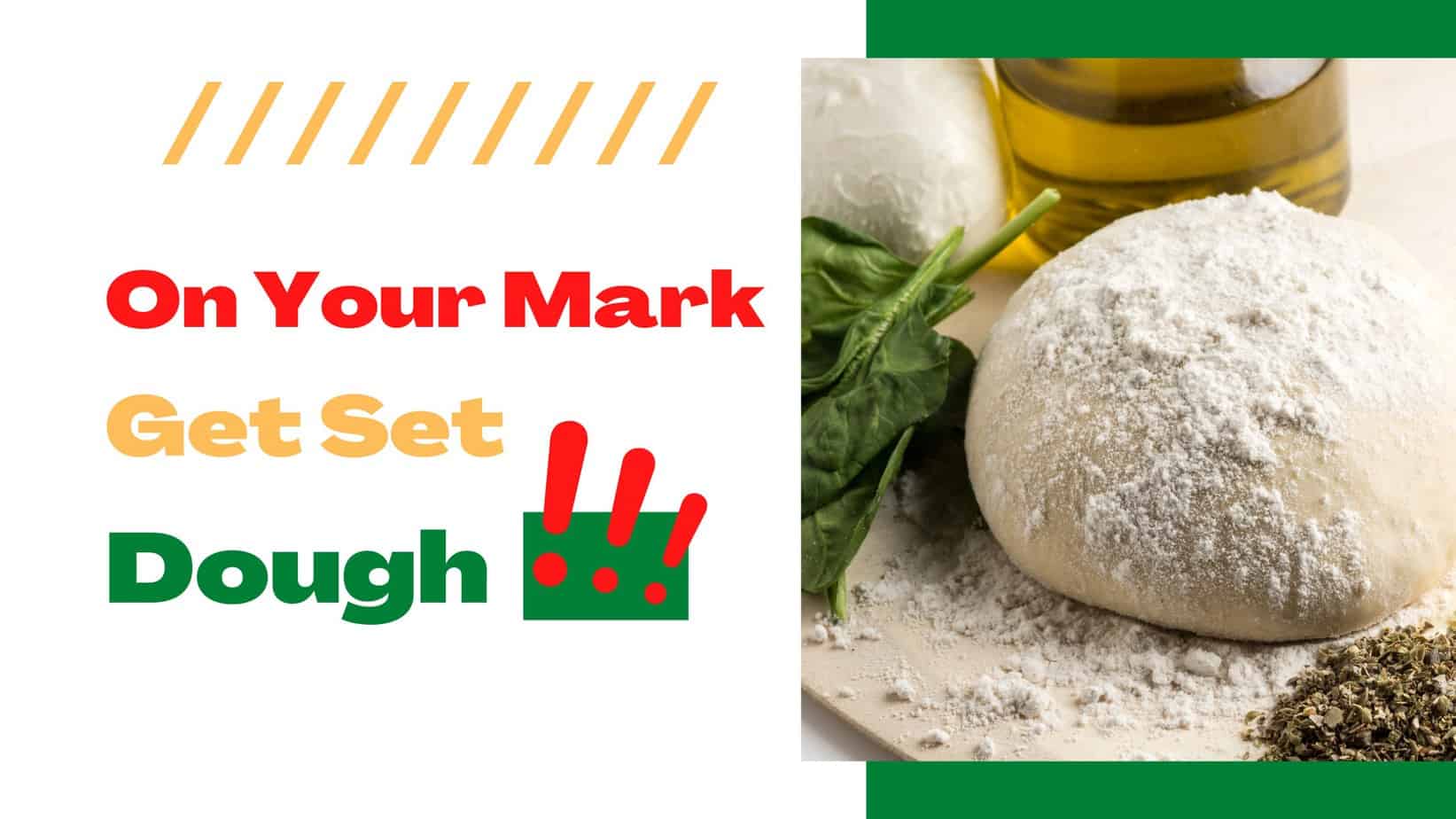
Pizza for Beginners: Don’t Buy Pizza, Make It! Here’s How to Get Started!
the PROs
You have this idea that you want to make pizza at home as opposed to ordering it, but where do you start? Don’t worry! Here you will find answers and directions to all your questions.

Pizza Toppings Under Cheese or Over Cheese? [Why the Order Matters]
the PROs
Is Pizza Cheese on Top or Bottom? Hey pizza lovers, are you wondering if you should layer pizza toppings under …
Newsletter
Subscribe to our Recipe of the Week newsletter and receive our partners’ latest recipes, tips, and discount offers.
Keep in Touch!
